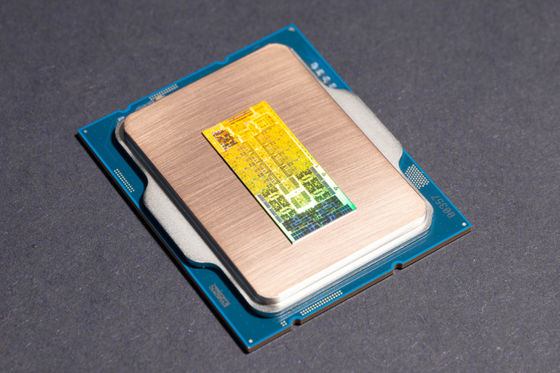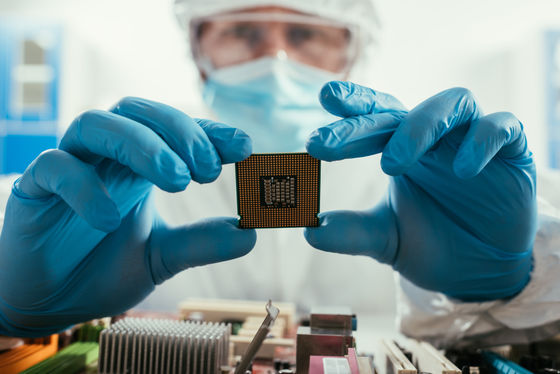Reports that Intel's 13th and 14th generation CPU degradation is 'irrecoverable' even with patches, one crash could be the end

It has been reported that Intel's 13th generation CPUs such as the 'Core i9-13900K' and 14th generation CPUs such as the 'Core i9-14900K' have
There is no fix for Intel's crashing 13th and 14th Gen CPUs — any damage is permanent - The Verge
https://www.theverge.com/2024/7/26/24206529/intel-13th-14th-gen-crashing-instability-cpu-voltage-qa
Intel finally announces a solution for CPU crashing and instability problems — claims elevated voltages are the root cause; patch coming by mid-August [Updated] | Tom's Hardware
https://www.tomshardware.com/pc-components/cpus/intel-finally-announces-a-solution-for-cpu-crashing-errors-claims-elevated-voltages-are-the-root-cause-fix-coming-by-mid-august
In 2024, PC gamers using high-performance CPUs have reported issues such as forced termination with the high-end 'K' series of Intel's 13th and 14th generation CPUs.
The problem was reportedly caused by a flaw in the microcode , which is the instructions for the CPU's internal operation, that caused the CPU to receive incorrect voltage requests.
In response, Intel has acknowledged the flaw and announced that it will release a patch by August 2024.
Intel finally admits that its own designs are causing problems with its 13th and 14th generation CPUs - GIGAZINE

PC information site Tom's Hardware reported on July 23, 2024 that 'the bug causes irreversible degradation of affected processors. A microcode patch is expected to prevent the issue in processors that are not affected by this problem, but it is said that it will not fix processors that are already experiencing crashes.'
It is unclear at this point whether the microcode issue could cause 'hidden degradation or damage' to the overvoltaged CPU, which could lead to future errors or crashes.
In addition, IT news site The Verge pointed out from an interview with Intel that overvoltage may not be the only factor involved in this defect. In 2023, it was discovered that some Intel chips had a problem with vias, which are holes that connect multiple layers, oxidizing, and Intel said that 'this problem is unrelated to via oxidation.' However, in response to an inquiry from The Verge, Intel employee Thomas Hannaford said that while the main cause was overvoltage, they were also investigating the relationship with via oxidation.

by
In addition, The Verge's interview revealed that the crash problem is not only affecting the top-end 'i9' series, but may affect all 13th and 14th generation desktop CPUs that operate at 65W or more of power, and details of how Intel plans to support users were also revealed. The main questions and answers are as follows.
The Verge
How many chips do you estimate could be irreversibly affected by these issues?
Intel's Mr. Hannaford (hereinafter, Intel)
Intel Core 13th and 14th Generation Desktop Processors with a base power of 65W or greater (including K/KF/KS and 65W non-K variants) may be affected by the high voltage issue, however this does not mean that all such processors are or will be affected in the future.
The Verge
Will Intel issue a recall, halt sales or withdraw inventory while it investigates the issue?
Intel
no.
The Verge
Do you expect the August 2024 patch to be effective for chips that are already in use but have not yet shown symptoms, i.e. invisible degradation?
Intel
Intel believes the microcode patch will be an effective preventative measure for processors already in production, but continues to test it to ensure it addresses the reported instability scenarios.
While the patch may improve instability for currently affected processors, customers experiencing instability on systems with 13th and 14th Generation desktop processors should contact Intel Customer Support for further assistance.
The Verge
Is there anything I can do to slow or stop the degradation before the microcode is updated?
Intel
Intel recommends users to stick to default settings for their desktop processors and keep their BIOS up to date, and encourages users to check for related BIOS updates as microcode patches are released by Intel's partners.

The Verge
Would you ever expose the manufacturing date or serial number of an oxidized processor for a
Intel
Intel continues to work with customers on via oxidation related reports to ensure they are fully supported through the replacement process.
The Verge
Why do you think this issue doesn't affect mobile chips?
Intel
Intel continues to investigate to ensure that reported instability scenarios in 13th and 14th generation processors are appropriately addressed, including ongoing analysis to identify key factors that may prevent these generations of mobile processors from being exposed to the same instability issues as desktop processors.

Since the patch does not repair damage to CPUs that have already been affected, The Verge said, 'If your defective CPU is damaged, your best option is to replace it rather than trying to mitigate the problem by tweaking BIOS settings.'
In addition, it has been reported that the return rate of the 13th to 14th generation Raptor Lake CPUs, which are known to have defects, is four times higher than that of the 12th generation CPUs.
Related Posts:
in Hardware, Posted by log1l_ks






